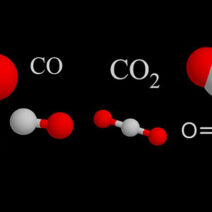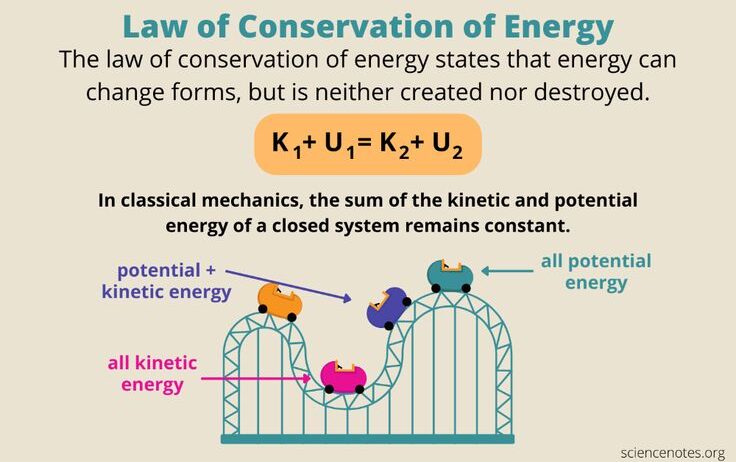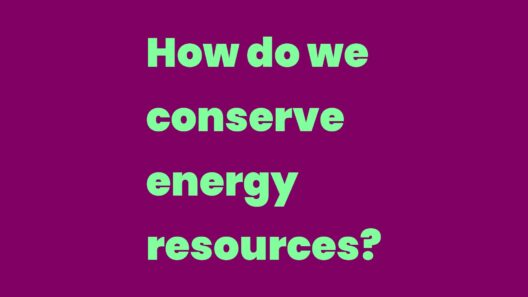Energy conservation is not merely an act; it is a profound commitment to our planet’s sustainability. By making energy conservation a daily habit, one can effectively contribute to the reduction of waste and promote a healthier ecosystem. This article delves into various strategies, innovations, and lifestyle shifts that can transform energy conservation from an abstract concept into a palpable daily ritual.
One of the pivotal first steps in embracing energy conservation is fostering an awareness of one’s energy consumption habits. Our daily routines often take place in a whirlwind of activity, causing us to become oblivious to the amount of energy expended during mundane tasks. To begin this journey, consider tracking utility bills and energy usage over a period of months. This data serves as a revelation; illuminating the patterns of consumption can spark curiosity about where and how improvements can be made.
Next, turning our focus to the very abode we occupy can yield remarkable benefits. Homes are significant contributors to energy usage, and thus, optimizing energy efficiency within them is paramount. Begin with small yet impactful measures. For instance, switching out incandescent bulbs for LED alternatives not only lowers energy expenditure but also enhances the ambiance of living spaces. In addition to lighting, investing in energy-efficient appliances can drastically reduce electricity consumption. Look for the ENERGY STAR label when shopping, as these products are designed to use less energy without compromising performance.
Furthermore, consider adopting a holistic approach to home insulation. The integrity of a home’s envelope profoundly affects energy efficiency. Poorly insulated walls, roofs, and windows allow heat to escape during winter months and let in unwanted heat during summer. Simple alterations, such as sealing drafty windows or adding insulation to walls and attics, can create a more temperate indoor environment while curtailing reliance on heating and cooling systems.
In addition to residential changes, the integration of renewable energy sources represents a transformative leap towards energy conservation. Exploring solar panels is a forward-thinking solution. While the initial investment may appear daunting, numerous incentives and rebates can alleviate the burden, and long-term savings often outweigh upfront costs. Solar energy epitomizes the principle of sustainability, harnessing natural resources for everyday power.
Transportation is another domain where energy conservation can be embraced. The average commuter expends considerable amounts of energy by opting for solitary vehicle trips. Carpooling, utilizing public transportation, biking, or even walking, can dramatically diminish one’s carbon footprint while fostering community and personal connections. Encourage local institutions to engage in promoting transit alternatives, thus inciting a collective shift in mindset regarding transportation.
A pivotal component of energy conservation involves reevaluating our consumption patterns in lifestyle decisions. Embracing minimalism serves as a countermeasure to consumerism, encouraging individuals to focus on quality over quantity. This perspective shift can lead to reduced purchases of energy-consuming items, reflecting an appreciation for sustainability that aligns with values rather than fleeting trends.
Moreover, engaging in conservation practices extends to societal participation. Schools, offices, and community organizations can spearhead initiatives that champion energy-saving measures. Establishing energy awareness campaigns that educate individuals on the impact of their choices can serve as a catalyst for collective action, ultimately inspiring change at a broader scale. Workshops and seminars focused on sustainable practices are effective for disseminating knowledge and stimulating interest in energy conservation techniques.
Creating a routine around energy conservation can be transformative. Set daily, weekly, and monthly goals for reducing energy usage. Simple actions, such as unplugging devices that aren’t in use, using cold water for laundry, or setting the thermostat a few degrees lower in winter and higher in summer, can seamlessly integrate energy-saving practices into quotidian life. These actions are not merely adjustments; they represent a conscientious choice towards a sustainable future.
Establishing educational platforms through social media can also proliferate energy conservation awareness. Utilize various online platforms to share tips, successes, and even challenges faced in the energy conservation journey. Inviting dialogue around this subject encourages others to partake, fostering a culture where energy conservation is perceived as a communal responsibility rather than an individual endeavor.
The existential benefits of energy conservation are profound. It aids in the alleviation of pollution, decreases greenhouse gas emissions, and conserves precious resources that future generations will rely on. As individuals commit to daily habits that prioritize conservation, the accumulative effect becomes palpable. Every small action contributes to a larger narrative that emphasizes stewardship for our planet.
Finally, it is essential to instill a long-term mindset regarding energy conservation. This approach transcends beyond momentary efforts, demanding a concerted lifestyle overhaul. Integrating conscious energy use into core family values ensures that future generations inherit a steadfast commitment to the environment. By nurturing curiosity about sustainability, each individual can evolve into an educator in their own right, perpetuating a cycle of awareness and responsibility.
In conclusion, making energy conservation a daily habit is not an insurmountable challenge, but rather an opportunity for growth and innovation. By taking responsibility on both personal and communal levels, a more sustainable existence can be fostered. Every action, no matter how small, contributes to a collective vision for a more energy-conscious world. Embrace the journey of energy conservation, and inspire others to do the same. Your commitment can spark a movement rooted in responsibility and dedication to preserving our planet for future generations.







